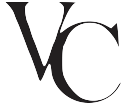What are Varicose Veins?
Varicose veins occur when your veins become enlarged, overfilled with blood, and begin to twist and curl up. The condition is very common, especially in women. Approximately 25 percent of all women have varicose veins. The thickened, dilated parts of the vein are called varicosities. Varicose veins can form anywhere on the body, but they most often appear on the legs and feet.
So, are they hereditary?
Many people who suffer from varicose veins may wonder if they are hereditary. Just like many gene disorders, varicose veins are in fact hereditary.
Your risk of developing varicose veins increases if a close family member has the condition, confirming a relationship between genetics and varicose veins.
If you have one parent with varicose veins, you have about a 40 percent chance of inheriting them. If both your parents have them, your risk drastically increases to 90 percent.
Having too few valves or valves that do not function properly is also a common problem that can be inherited.
In some cases, you may be born with abnormalities of the vein wall. The resulting weakness may predispose the valves, which causes separation and cracking. When a person with poorly functioning valves stands up, the blood flow reverses and flows down the superficial veins, when it should be flowing up towards the heart. Pressure is then built up in the superficial veins and causes varicosities.
Other Causes of Varicose Veins
While genes may play a role in the development of varicose veins, many other factors are to be considered. Other risk factors for these conditions include:
– Obesity
– Occupations that involve long periods of standing or sitting
– A personal or family history of blood clots
– Hormonal changes, especially during pregnancy
– Gender and age
If you are interested in learning more about varicose veins and how they can be treated, contact The Vein Centre today at 615-269-9007!



